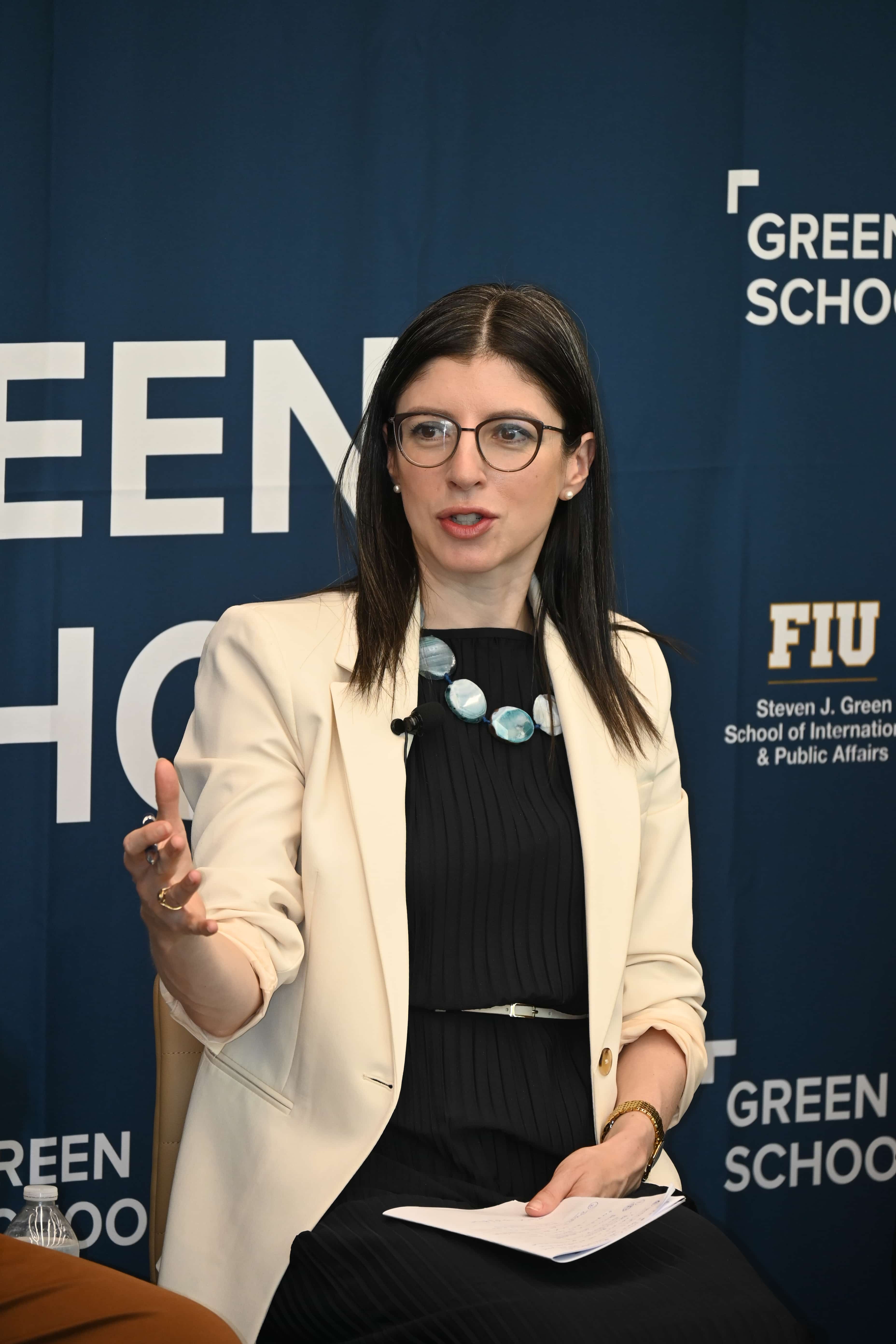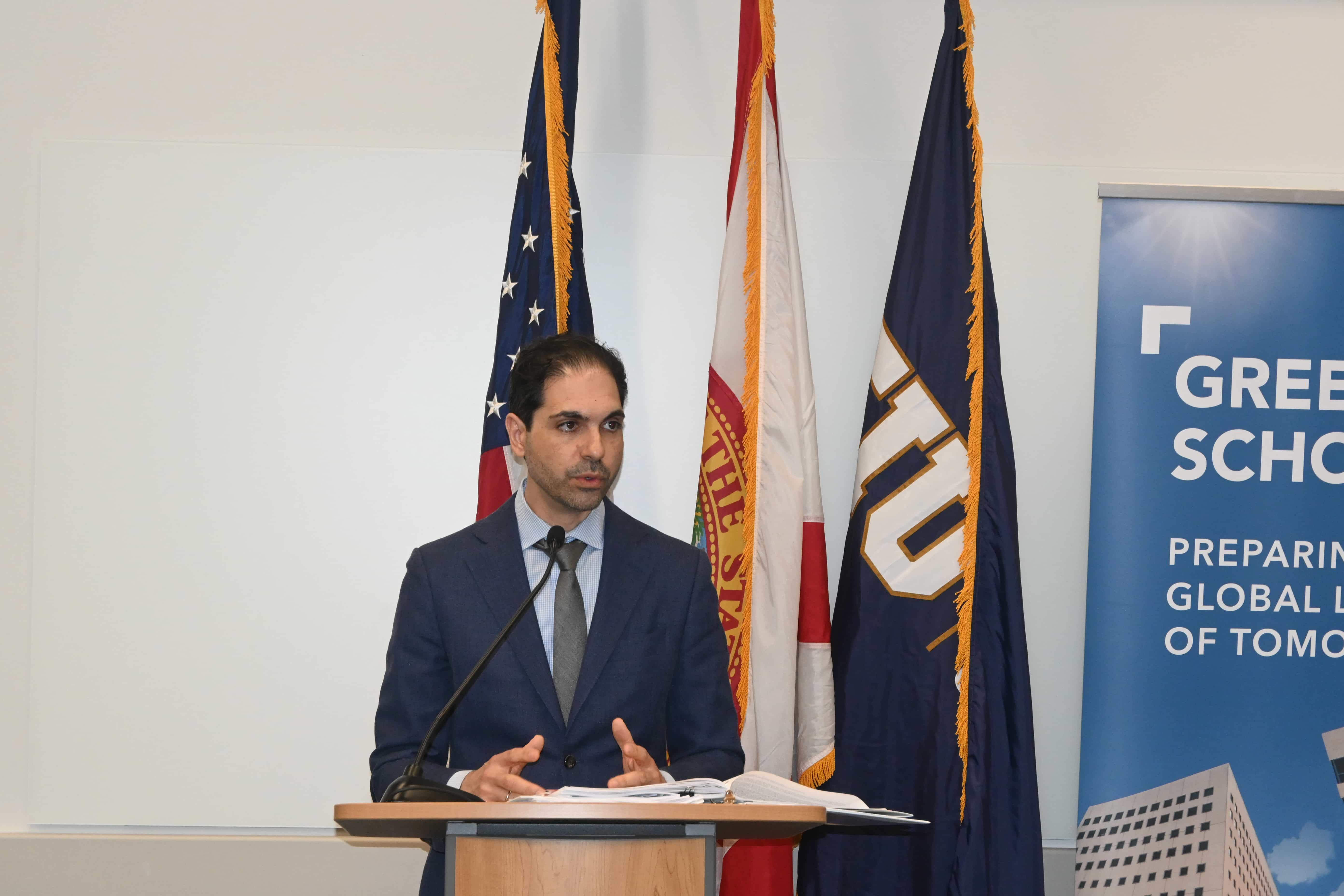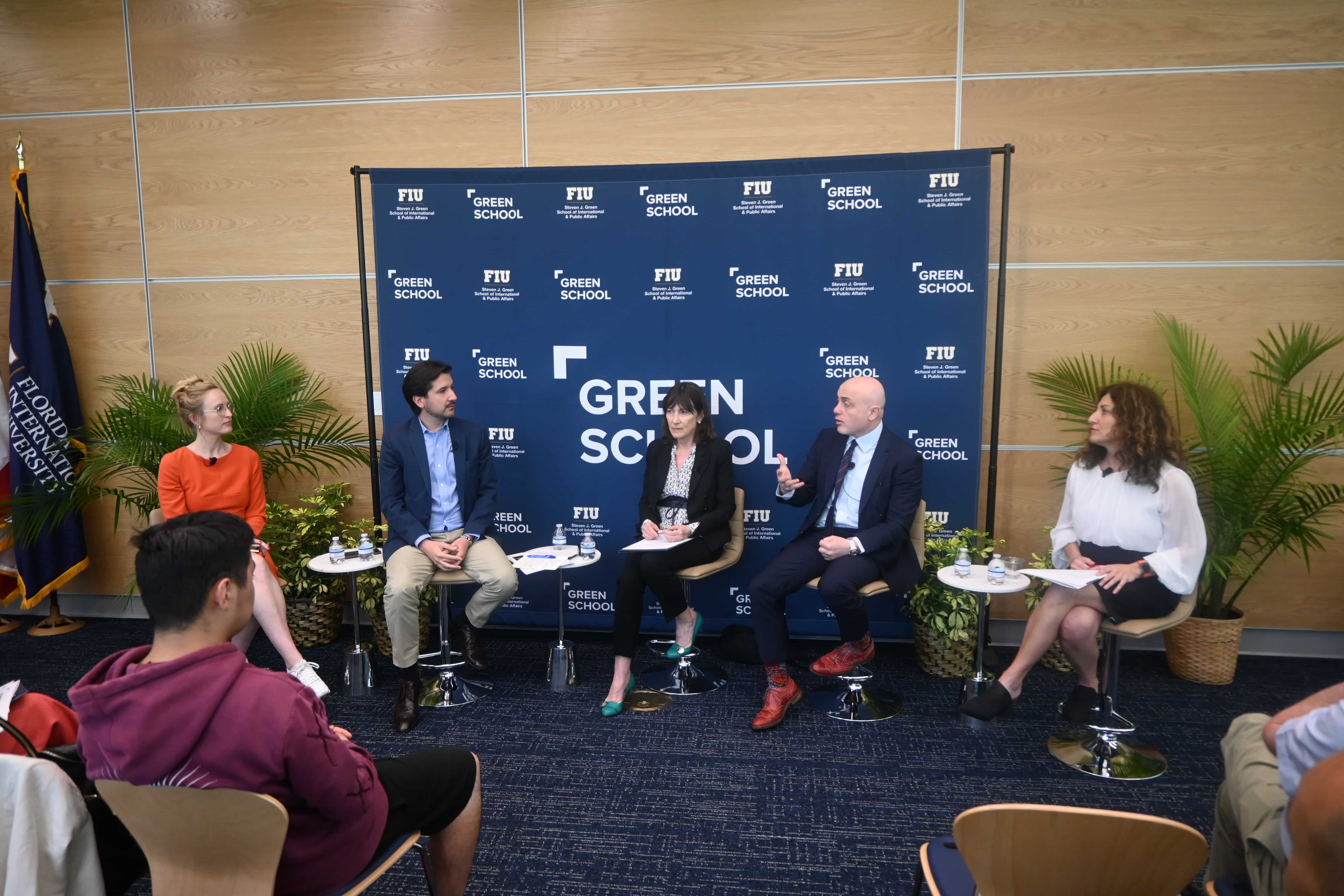In the decades following the Cold War, the United States and other liberal democracies have failed to adequately address geopolitical developments – be they overt or stealthy, domestic or international – that have steadily eroded democracy in their own countries as well as in other in nations around the world.
That was one of the overriding takeaways at the second annual Miami Conference on Global Democracy, presented by the Steven J. Green School of International & Public Affairs on April 18. In two engaging, interactive panel discussions and a keynote address, the conference explored several themes associated with the backsliding – as well as hopeful signs of progress – of democracy.
“Today, we’re going to shine a light on how waning public support for democracy, economic inequality and social tensions, populist politics, external pressures from great power competition, and the weakening of political institutions and processes have contributed to a steady decline in democracy worldwide,” said Green School Dean Shlomi Dinar during his opening remarks at the event, adding that there are some places and developments that are cause for optimism.
The conference was presented in collaboration with the Jarl Hjalmarson Foundation and Freedom House, and was sponsored by the Dorothea Green Lecture Series and the Václav Havel Program for Human Rights and Democracy.
In the post-Cold War era, authoritarian states—particularly China and Russia—have been exerting what’s known as “sharp power” to extend their influence internationally to limit free expression, spread confusion, and disrupt politics within democracies.
“There have been some flawed assumptions coming out of the Cold War,” noted Christopher Walker, vice president for studies and analysis at the National Endowment for Democracy who helped popularize the term sharp power. “The biggest thing we missed over time was not recognizing that these nations would exert their influence beyond their border in this way. … China has scaled it globally.”
While the world’s focus on Iran is currently centered on its conflict with Israel, FIU Associate Professor of Politics and International Relations Eric Lob noted that cyber activities are one of the state’s primary security tools – and it will likely deploy them in this U.S. presidential election year to sow influence and manipulation.

Alina Polyakova, president and CEO of the Center for European Policy Analysis, said nations need to go on the offensive to combat authoritarian sharp power.
“We’ve seen a ramping up and doubling down by Russia using the tools of sharp power the past few years,” said Alina Polyakova, president and CEO of the Center for European Policy Analysis. “We need to learn how to respond against what authoritarian regimes are doing. … We’re losing the battle as we speak, we need to step it up.”
Of course, there are many cases where democracy is subverted by forces within a nation. While often dramatically depicted in films or novels as violent coups, quite often they are more gradual progressions that erode institutions and norms.
In a panel that focused on the “playbook” for undermining democracy, the insidious impact of social media was discussed. Inga Trauthig, head of research of the Propaganda Research Lab at the University of Texas at Austin, noted that the use of encrypted messaging, trolling and harassment have become commonplace on social media to undermine democratic pillars.
She said that social media companies should support public regulation of platforms “to make them accountable for ways they are exploited.” Underscoring how widespread the problem has become and the need for a societal resilience, she said we need to “spread the word that propaganda is everywhere and you can be manipulated online.”
Adrian Shahbaz, vice president of research and analysis at Freedom House, discussed three main tactics authoritarian leaders employ to subvert democracies: divide the public by scapegoating and blaming particular groups or populations for problems; capture and control institutions, usually the media, and transform them into the government mouthpiece; and change the nation’s rules in the ruler’s favor. Concerning the scapegoating of populations, Shahbaz cited examples in several countries, including Turkey and India.

Michael Camilleri of USAID discussed the agency’s Democracy Delivers Initiative that helps nations experiencing promising reforms.
A different side of the global state of democracy was shared by keynote speaker Michael Camilleri, who led the U.S. Agency for International Development’s (USAID) Democracy Delivers Initiative that aims to support countries experiencing promising, relatively recent reforms that help advance citizen priorities and strengthen democratic governance – often referred to as “bright spots.” Launched in 2022, the Initiative has supported efforts in countries including Armenia, Dominican Republic, Ecuador, Malawi, Maldives, Moldova, Nepal, Tanzania and Zambia.
“Democracies have an instrumental value to deliver the conditions that will allow every member of society to grow and prosper,” Camilleri said. “We’re the leading provider of democracy assistance in the world. Two decades of declining global freedom has made USAID rethink how to make democracy work.”
Camilleri, who was recently named acting assistant administrator of USAID's Latin America and Caribbean Bureau, added: “We must update our democratic playbook for a world where democracy is not only facing threats but under attack.”
